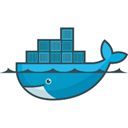Unlocking Scalability: The Best Nebula Container Orchestrator Alternatives
Nebula Container Orchestrator stands out as a unique solution for managing IoT devices and distributed services like CDNs, treating them much like Dockerized applications. It offers an open-source, free platform with features like latency tolerance, vast scalability, and a single API for global device management. However, for various reasons – perhaps specific feature requirements, platform preferences, or integration needs – many users seek a robust Nebula Container Orchestrator alternative. This article explores some of the top options available.
Top Nebula Container Orchestrator Alternatives
Whether you're looking for broader cloud integration, more advanced container management, or a different deployment model, these alternatives offer compelling solutions for your orchestration needs.

Heroku
Heroku is a platform as a service (PaaS) that enables developers to build, run, and operate applications entirely in the cloud. While Nebula focuses on IoT and distributed services, Heroku provides a broader platform for web applications. It's a freemium service available on Mac, Windows, Linux, and Web, offering features like Custom DNS, DNS management, Automated deployment, and Command Line support, making it a strong contender for general application deployment, albeit with a different focus than Nebula's IoT specialization.

OpenShift
OpenShift, Red Hat's auto-scaling Platform as a Service (PaaS), is another powerful open-source choice. Available on Linux and Web, OpenShift directly competes with Nebula in the orchestration space by managing the application stack in the cloud. Its features include Container monitoring and Web Development capabilities, offering a robust, enterprise-grade alternative for managing containerized applications, particularly for those deeply integrated into the Red Hat ecosystem.

Kubernetes
Kubernetes is an open-source orchestration system for Docker containers, widely regarded as the industry standard. As a free, open-source solution available on Web and AppArmor, it offers extensive Container Orchestration features, making it a direct and highly scalable competitor to Nebula for managing Docker containers across clusters. While Nebula targets IoT specifically, Kubernetes provides a more generalized, powerful, and feature-rich platform for large-scale container deployments.

Rancher
Rancher is an open-source project that provides a complete platform for operating Docker in production. It is free and available on Windows and Linux, offering features like Cloud Monitoring and robust Support for Docker. Rancher simplifies the management of Kubernetes and other container orchestration platforms, making it an excellent open-source alternative for organizations seeking a user-friendly interface to manage their containerized workloads, similar to how Nebula aims to simplify IoT device management.

Nanobox
Nanobox is a commercial, open-source platform for developers that automates infrastructure creation and configuration, effectively taking on the role of DevOps. Available on Mac, Windows, Linux, and Web, it offers features like Automated deployment, Cloud coding, and comprehensive DEV/OPS setup. While Nebula focuses on IoT device orchestration, Nanobox offers a complete development and deployment environment, ideal for teams seeking to streamline their entire application lifecycle, regardless of the target environment.

Microsoft Hyper-V Server
Microsoft Hyper-V Server 2008 R2 is a commercial, stand-alone virtualization solution for Windows and Linux environments. While Nebula is a container orchestrator, Hyper-V focuses on providing a reliable and optimized virtualization solution through its Hypervisor features. It's a foundational technology for running virtual machines and can be part of an ecosystem that supports container orchestration, offering a commercial, Windows-centric alternative for infrastructure management.

Apache Mesos
Apache Mesos is a free, open-source cluster manager available for Mac and Linux. It simplifies the complexity of running applications on a shared pool of servers, providing a robust foundation for building distributed systems and effectively acting as a 'distributed kernel.' While Nebula focuses on IoT, Mesos offers a powerful, generalized cluster management solution that can underpin various orchestration frameworks, including those for containers, virtual machines, and even traditional applications, making it a versatile open-source alternative.

Dokku
Dokku is a Docker-powered mini-Heroku, implemented in around 100 lines of Bash. As a free, open-source, and self-hosted solution for the Web, it offers a lightweight platform-as-a-service experience. For users seeking a more contained, self-managed alternative to Nebula for deploying containerized applications without the overhead of a full-scale orchestrator, Dokku provides a simple yet effective solution, especially for smaller deployments or development environments.

Deis
Deis is an open-source PaaS that leverages Docker, CoreOS, and Heroku Buildpacks to provide a lightweight and flexible private application platform. Available for Linux and free, Deis supports Docker and offers features related to Hypervisor, Operating system, Virtual Machines, and Virtualization. Similar to Nebula's open-source nature, Deis provides a robust, self-hostable platform for deploying and managing applications, making it a strong alternative for teams seeking control over their PaaS infrastructure.

Docker Swarm
Docker Swarm is native clustering for Docker, allowing users to create and access a pool of Docker hosts using the full suite of Docker tools. It is free, available on Mac, Windows, Linux, and is self-hosted with direct Docker integration. Like Nebula's focus on Docker containers for IoT, Docker Swarm provides native support for Docker, Hypervisor, Operating system, Virtual Machines, and Virtualization, making it an excellent, integrated open-source alternative for simpler container orchestration needs without external dependencies.
Choosing the right orchestration tool depends heavily on your specific use case, existing infrastructure, team's expertise, and scalability requirements. While Nebula Container Orchestrator offers a specialized solution for IoT and edge computing, these alternatives provide diverse capabilities, from general-purpose PaaS to robust container orchestration platforms, ensuring there's a perfect fit for every need. Explore their features and determine which best aligns with your project's goals.